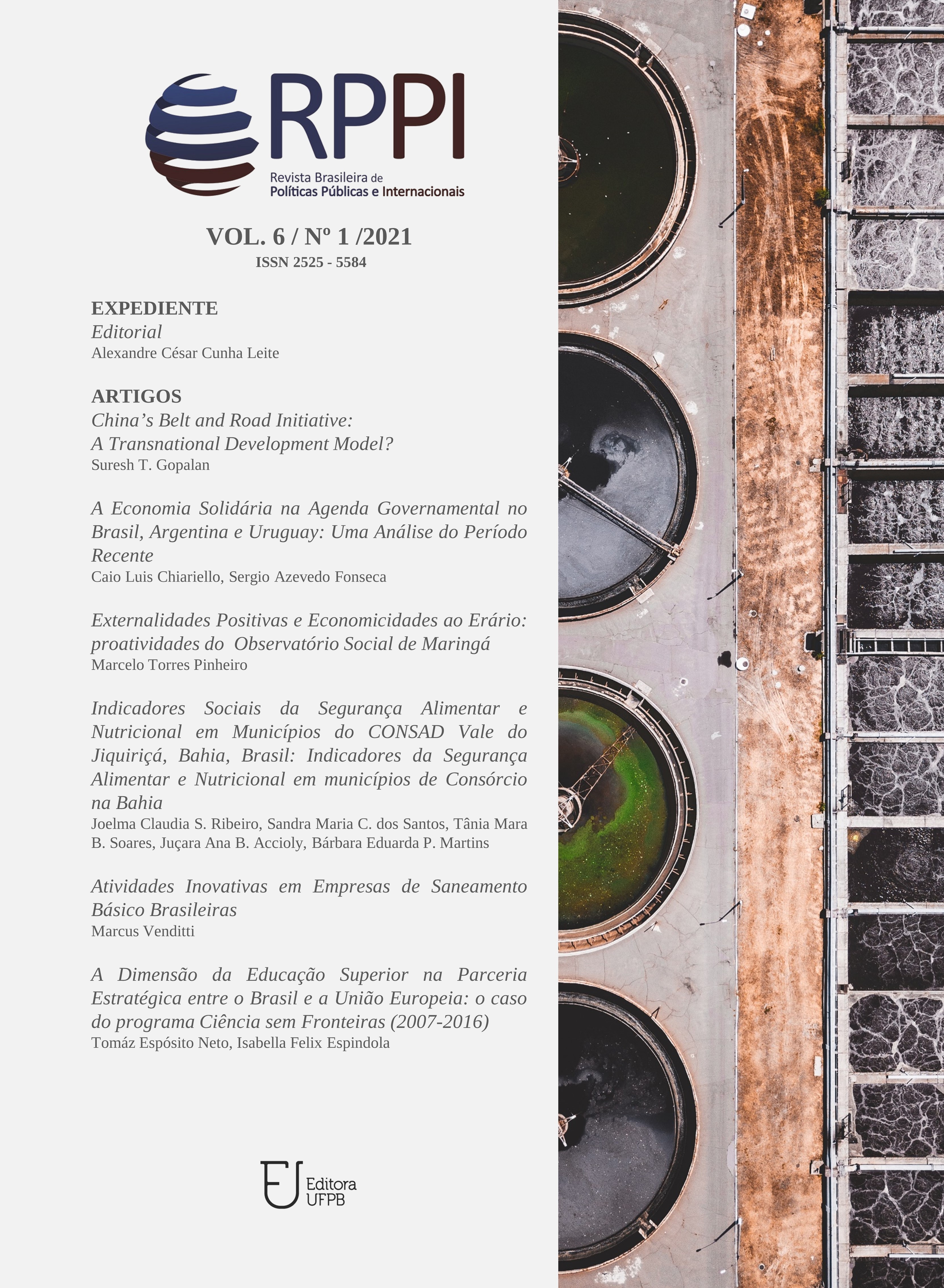Positive Externalities, and Economy to the Treasury
Pro-activities of the Social Observatory in Maringá
DOI:
https://doi.org/10.22478/ufpb.2525-5584.2021v6n1.58299Keywords:
Externalidade Positiva; Economicidade ao Erário; Controle Social; Observatório Social de Maringá.Abstract
In economics, positive externalities express benefits generated to people who do not participate in the original action of the activity or work that generated them. The mission of the Social Observatories is to carry out social control activities related to the use of the public fund. But how to evaluate if the economic impact generated by the Social Observatory's work provided the economy to the Treasury? This research analyzed the work developed by the Social Observatory in Maringá (SOM) over a ten-year period starting in 2007, to better understand the economic contribution its activities provided to the local society. Through collected data, sought to describe and explain the qualitative attributes of the work carried out and to quantify the significance of the monitoring of municipal public expenditures in the various modalities of purchases and acquisitions. The irregularities were listed, as well as the amounts of economic income generated to the municipal coffers. It can be observed that the amounts recovered have a small nominal representation, but great economic relevance. Considering that the functional costing of the activity performed by the SOM is low, since a large part of its staff consists of volunteers, it can be concluded that, given the results achieved, the SOM is a generator of positive externalities.
Downloads
Downloads
Published
Issue
Section
License
Copyright (c) 2021 Marcelo Torres Pinheiro Marcelo Torres Pinheiro

This work is licensed under a Creative Commons Attribution 4.0 International License.
Autores que publicam nesta revista concordam com os seguintes termos:- Autores mantém os direitos autorais e concedem à revista o direito de primeira publicação, com o trabalho simultaneamente licenciado sob a Licença Creative Commons Attribution que permite o compartilhamento do trabalho com reconhecimento da autoria e publicação inicial nesta revista.
- Autores têm autorização para assumir contratos adicionais separadamente, para distribuição não-exclusiva da versão do trabalho publicada nesta revista (ex.: publicar em repositório institucional ou como capítulo de livro), com reconhecimento de autoria e publicação inicial nesta revista.
- Autores têm permissão e são estimulados a publicar e distribuir seu trabalho online (ex.: em repositórios institucionais ou na sua página pessoal) a qualquer ponto antes ou durante o processo editorial, já que isso pode gerar alterações produtivas, bem como aumentar o impacto e a citação do trabalho publicado (Veja O Efeito do Acesso Livre).




_.jpg)






.png)


.jpg)
_.png)
